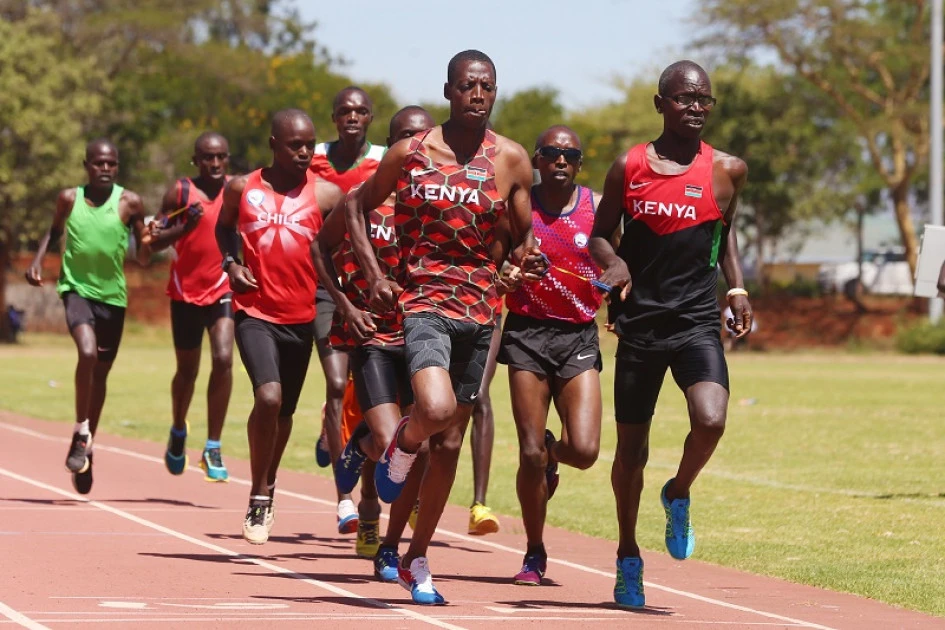World Para Athletics Championships fever is building in Kenya, and for good reason. After a string of remarkable accomplishments at recent international para athletics and cycling events, Kenyan para athletes are sharpening their focus and ambitions for the global stage. Their journey is not only a testament to personal resilience but also a compelling narrative of a nation striving to redefine its sporting identity on the world map of para athletics.
From African tracks to global ambitions
The last several months have seen Kenya’s top para athletes leave an indelible mark at African and world para competitions. At the Marrakech Grand Prix in Morocco, Kenya finished second overall, collecting 26 medals across an array of track and field disciplines. Not content to rest on their laurels, the Kenyan team also put in a strong showing at the Dubai Grand Prix, clinching 16 medals and demonstrating remarkable depth and versatility. Against a field of athletes from 51 countries including para athletics powerhouses, Kenya’s medallists proved they are ready for the global spotlight.
Meet the athletes fueling Kenya’s para athletics surge
Multiple stories have emerged from this recent golden run. The powerful performance of Wesley Sang in the men’s 1,500m T47/T13 typifies the hunger and determination in Kenya’s camp. Racing to gold with a time of 4:03.68, Sang edged compatriot Joseph Kiptanui and Uganda’s Janas Oryema, then dug deep for silver in the 400m, finishing with a gutsy 55.76 in the T20/T46 category. Such moments highlight both individual brilliance and the fierce intra-African rivalries that have raised the level of para sport on the continent.
Meanwhile, Vincent Mutai soared to gold in the long jump T20/T46, leaping 6.78 meters and underscoring the country’s field-event credentials. In the sprints and middle distances, Priscah Jepkemei and John Mukiri have caught the eye with their consistency and hunger for gold. Jepkemei’s double triumph in the women’s 1,500m T11/T20 and 400m T11 events showed a blend of tactical awareness and sheer athleticism, while Mukiri’s golds in the men’s 200m T11 and 400m T11/T12, alongside a bronze in the 100m, hint at a bright future ahead.
Stency Neema has emerged as one of the most versatile talents, not only claiming para athletics medals but also competing internationally in taekwondo and badminton. Her gold and silver in the women’s 200m and 100m events respectively, both with personal bests, reinforce the growing depth of Kenya’s para women’s squad.
The wider medal haul and what it means
The numbers speak for themselves. At Marrakech, Kenya’s para athletics team amassed a total of 26 medals — seven gold, nine silver, and ten bronze — securing second place behind hosts Morocco. Earlier in Dubai, the squad tallied another 16, with a stunning nine golds. Achieving these results amid intense rivalry, especially with regional powerhouse Morocco, showcases the growing maturity and tactical nous of the Kenyan contingent. These medals are not just hardware; they are passports to greater opportunities, including direct qualification for the Los Angeles 2028 Paralympic Games for medallists at the forthcoming World Para Athletics Championships in New Delhi.
The path to New Delhi and the Paralympics beyond
Around 30 Kenyan para athletes are expected to make the trip to the World Para Athletics Championships in New Delhi, India, from September 26 to October 5. The final squad selection rests on stringent World Para Athletics standards, ensuring that every representative is deserving and prepared. According to Kenya National Paralympic Committee president Ronald Milare, a gold medal at a Grand Prix alone does not guarantee selection if classification criteria are not met. This emphasis on quality over quantity is sharpening competition within the Kenyan ranks and ensuring the best possible team for India.
The upcoming championships are also double-edged, as performances in Marrakech served as a qualifier for the 2026 Commonwealth Games in Glasgow. This is particularly crucial for Kenya’s sprinters and field athletes, who now await confirmation of their places. The stakes could not be higher—New Delhi is both a proving ground and a springboard: a top finish there brings not only world glory but direct passage to the next Paralympics. For these athletes, every stride, jump, and throw is now laden with future promise.
| CASINO | BONUS | INFO | RATING | |
|---|---|---|---|---|
|
bonus
New players get 50 free spins and a Ksh 2500 freebet!
See 7 Bonuses
|
info
BK 0000665 PG 0000405 Good combination of online casino and betting platform |
|||
|
bonus
Welcome package: 190,000 KES + 150 FS
See 11 Bonuses
|
info
BK 0000695 PG 0000419 A wide range of bonuses |
|||
|
bonus
Earn points on every bet, convert to cash rewards!
See 7 Bonuses
|
info
BK 0000689 PG 0000414 Amazing Android app, sleek and user-friendly site, and over 1000 casino games |
|||
|
bonus
Get 200% deposit bonus + 200 free spins on Veni Vidi Vici!
See 6 Bonuses
|
info
BK 0000562 PG 0000350 Large game selection, attractive bonuses, and top-notch security |
|||
|
bonus
Claim 1 free spin for signing up, win up to KSH 1,000!
See 3 Bonuses
|
info
PG 0000422 Games from top providers, rewarding welcome bonus & VIP program |
Cyclists making waves in the African arena
Kenya’s para athletes are also rewriting the script in cycling. At the Para Track African Championships in Cairo, Kenyan cyclists secured 12 medals, powered by standout performances from C3 class rider Samwel Mwangi and Dedan Ireri in C2. Each of them turned in a hat-trick of gold medals, adding to Kenya’s growing reputation in para cycling on the continent. The achievements of visually impaired rider Felistus Kaveva, who collected three silvers in the B category for tandem cyclists, further underline a strong gender balance and the significance of teamwork in achieving success.
The triumphs of these cyclists, many of whom compete against sparse fields but still cherish every opportunity for international exposure, are crucial. In the words of Ireri, “It was a good event and I got the much needed exposure competing with C2 riders who are much stronger.” For athletes who often have to overcome logistical and resources challenges simply to get to the start line, such events deliver more than medals—they offer hope, confidence, and validation.
Defining resilience and rewriting narratives
In every Kenyan para athlete’s journey, there is a story of perseverance and pushing past perceived limitations. For many, sport is far more than competition—it is a form of self-expression, a community, and a statement about what is possible. The coming together of cycling, track, and field success stories casts a new light on disabilities, not as barriers, but as catalysts for achievement.
The recent parade of Kenyan para athletics and cycling results should be viewed in this context. Each victory is a step in redefining the role of sport in Kenyan society, especially for those historically at the margins. It is a reminder that talent and tenacity can, given the right support, propel anyone to the forefront of international sport.
A future brimming with hope
As the World Para Athletics Championships in New Delhi draw near, Kenya’s para athletes march forward laden not only with medals but also with dreams and unshakable resolve. Their stories are woven from grit, skill, and national pride. The world will be watching, but for these athletes and their supporters back home, the real victory is in every challenge met, every limit shattered, and every finish line crossed—not just for glory, but for the legacy they are determined to create.











